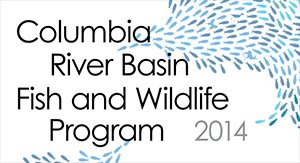Cost Savings
$400,000 in fish and wildlife project cost savings will improve the efficiency of the Council's fish and wildlife program and protect ratepayers from increasing costs.
- November 09, 2017
- John Harrison

The Northwest Power and Conservation Council voted November 15 to redirect $474,000 in cost savings from fish and wildlife projects that are closing out or had large budget reductions. The money will pay for repairs and needed maintenance at fish hatcheries and irrigation diversion screens. The transfer is the latest decision by the Council to contain the cost and improve the efficiency of its Columbia River Basin Fish and Wildlife program, the largest regional effort of its type in the nation.
Earlier this year, the Council returned $400,000 to the Bonneville Power Administration from cost savings, money that Bonneville could put toward rate relief for its customers. The federal power marketing agency is funded by electricity sales to Northwest utilities, and a portion of the revenue pays for the Council’s fish and wildlife program.
In the fiscal year that just ended and the one that just started, nearly $2 million has been identified for transfer to other projects or, when possible, for return to Bonneville. Additional potential cost savings totaling nearly $3 million have been identified in fiscal years 2019 and 2020, but not yet confirmed.
“It’s the Council’s job to find the highest and best uses for Bonneville ratepayer funds, and what that amounts to is saving ratepayer dollars and providing a measure of rate relief for Bonneville customers,” said Council vice chair Bill Booth of Coeur d’Alene. Booth chairs a committee that has been investigating critical maintenance and operational needs in Bonneville-funded projects. “Some of the savings are being returned directly to Bonneville for rate relief, and the rest will result in lower fish and wildlife budgets and a more efficient program in future years. It’s a win-win situation for consumers.”
The money transferred today was identified by a cost-savings workgroup comprising Council and Bonneville personnel. The workgroup has been reviewing projects for savings that could be transferred to new and existing high-priority projects without having to increase the budget.
“Cost savings are important because Bonneville has made clear that the energy marketplace is becoming more volatile, and this may cut into Bonneville’s revenues and its ability to fund fish and wildlife mitigation in the future,” said Montana Council Member Jennifer Anders, who chaired the cost-savings workgroup. “The committee’s success demonstrates how Bonneville and the Council can work well together to achieve a common vision.”
Of the savings approved for transfer today, $324,000 will go to repair or replace equipment at fish hatcheries in Idaho, Montana, Oregon, and Washington, and $150,000 will go to confirm costs, apply for permits, and undergo environmental review for needed maintenance at five large irrigation fish-diversion screens.



